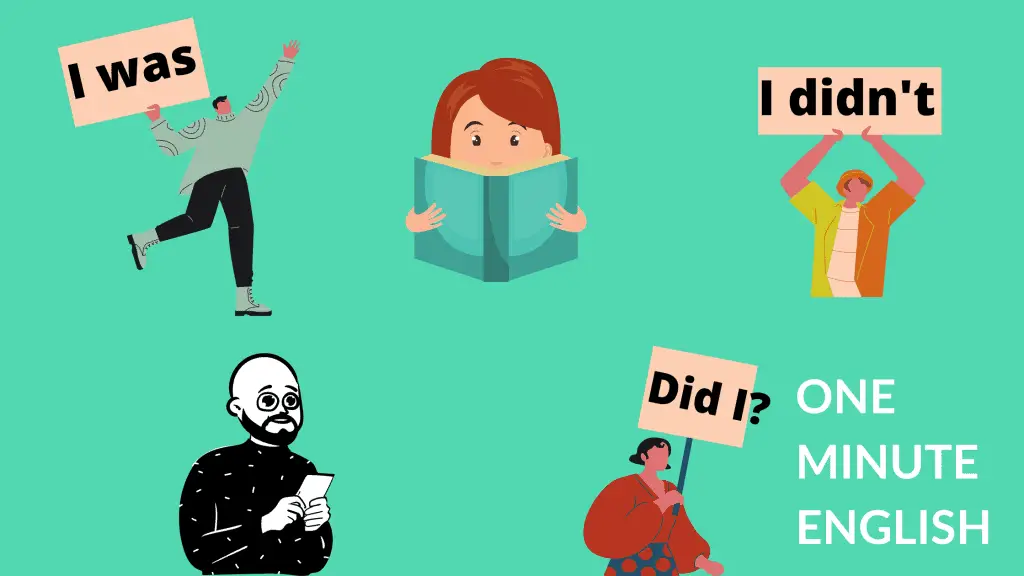Practice English or Spanish with AI here
Past simple tense rules
Most Verbs in the past simple are regular but there are also a lot of irregular verbs too. You need to learn these irregular verbs.
Regular Verbs
Regular Verbs usually add -ed to the root of the main verb.
Talk → Talked
Watch → Watched
Walk → Walked
Example sentences:
I talked to Cristiano Ronaldo after the game.
I watched Portugal against Spain last night.
I walked to the shop yesterday.
With regular verbs, you also need to pay attention to spelling variations which you can see below.
Irregular Verbs
There are a lot of irregular verbs in the past simple that do not follow the rule above.
Here are some common examples:
Be
Have
Get
Quit
Read
See
Take
Wake
Here is a full list of Irregular verbs in the past simple.
Spelling Variations
Usually, we add -ed to the verb.
When the verb ends in e then we just add d(Create, Live, State).
Sometimes we need to double the last letter like in the past simple for stop which is stopped.
The rule for this is when the verb ends in consonant/vowel/consonant and the last syllable is stressed.
To plan
I planned the whole week in advance.
To rub
He rubbed his hands together.
To slip
He slipped on the grass.
When a verb ends in c then you need to ad ck
To panic
He panicked in the underground.
Do not double the last syllable if the first syllable is stressed or the verb ends in x or w
To enter
I entered the room.
To fix
I fixed the computer.
In British English, you need to always double the “l”
To travel
He travelled up and down the country.
When to use the Past Simple Tense
The past simple is used to show a completed action at a specific time in the past. Like the present simple, we use the past simple to show habits, facts, and things in general except this time we are talking about the past.
1. Completed actions in the past
We use the past simple tense to show that an action is finished and in the past. It does not have a relationship with the present.
Examples:
I went to the shop yesterday.
I sent you an email.
I drove to Athens for my holidays.
She collapsed on the ground.
2. A past situation(duration)
We also use the past simple to show that something happened over a period of time in the past but that time is now finished.
Examples:
I lived in Australia for 2 years.
I played football for 4 hours yesterday.
I studied at University for 4 years.
She spent 4 months as a volunteer.
3. Habits in the past
We can use the past simple for habits in the past. If you want to emphasize that you do not do these habits in the present, then you can use “used to”.
Examples:
I swam in the sea every day when I lived near the coast.
I woke up at 8 am for University every morning.
I did my shopping in Tesco before they increased the prices.
I took the bus to school every day.
4. Past facts or things in general
We use the past simple to show things in general and facts in the past. The facts are often not true in the present.
Examples:
Ireland was a cheap country to live in.
The Government spent £12 billion in 2002.
People tried to fix things more often in the past.
Negative Sentences in the Past Simple Tense
We use did not (didn’t) for negative sentences except the verb to be.
I didn’t like tennis.
I didn’t come here to talk to you.
I didn’t break the chair.
I didn’t fix the computer.
I was not tired.
You weren’t late.
She wasn’t on the team.
They weren’t very fast.
Notice that didn’t always stays the same but you need to change the verb to be to conjugate with the subject pronoun(I, you, he)
Contractions are very common in the negative in the past simple(didn’t, wasn’t, weren’t)
Questions in the Simple Past Tense
We use did to form a question in the past simple tense except the verb to be.
Yes/No Questions in the Past Simple
Yes/No questions are formed with the auxiliary did. We use did before the subject.
Did you find the bar?
Did you come here alone?
Did you see the lion?
Did he go with you?
The question form of the verb to be is to invert the subject and the verb.
Were you tired?
Was I sick that day?
Were they absent from school?
Was he from Spain?
Wh-Questions in the Past Simple
We place the WH question word before the auxiliary did.
- 10 Words or Phrases “To Make Her Feel Special” - October 16, 2024
- Synonym Generator - September 11, 2024
- [BrutallyHonest] Langua AI Review – Can you learn a language with AI? - April 23, 2024


